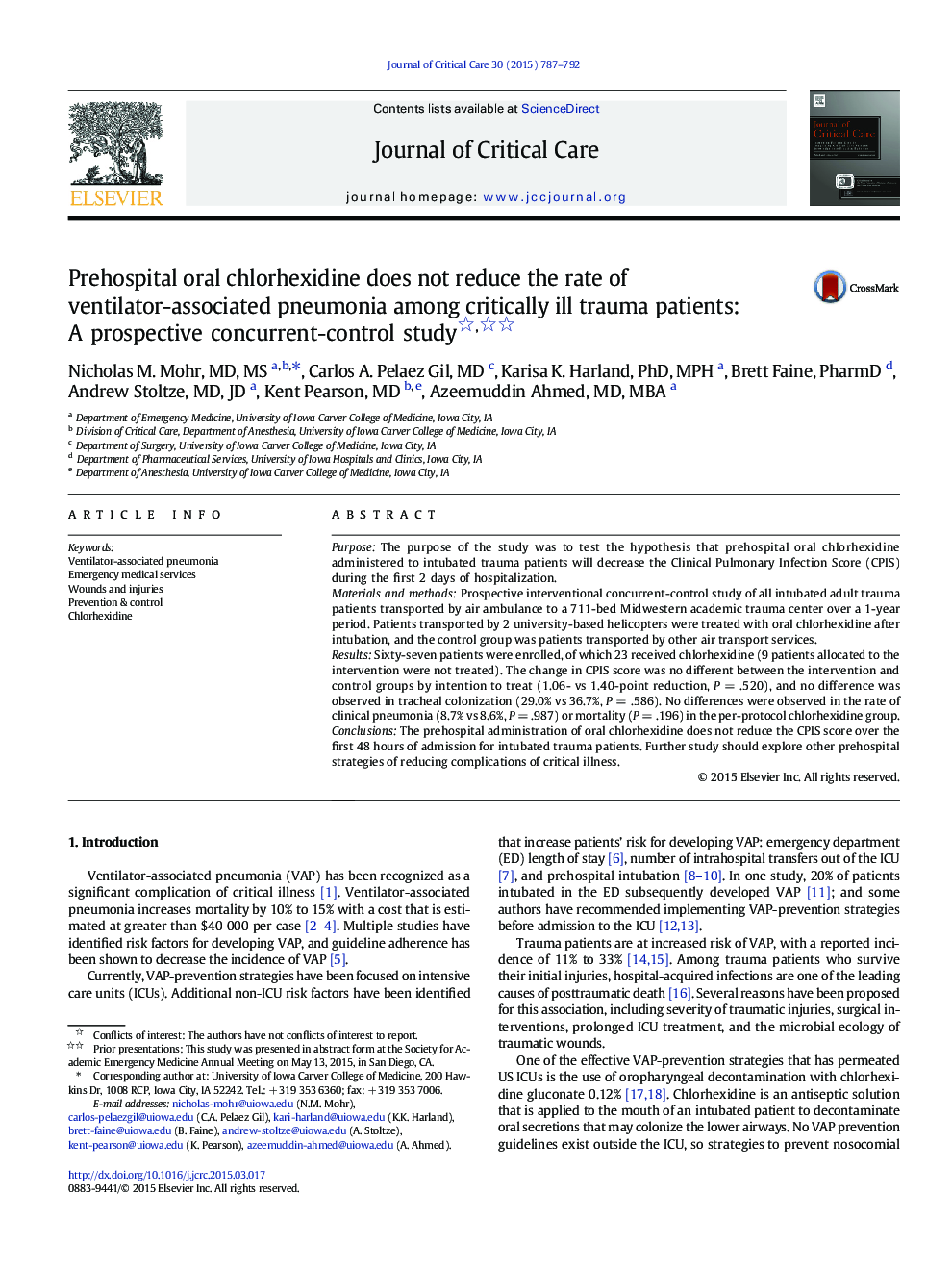| Article ID | Journal | Published Year | Pages | File Type |
|---|---|---|---|---|
| 2764534 | Journal of Critical Care | 2015 | 6 Pages |
PurposeThe purpose of the study was to test the hypothesis that prehospital oral chlorhexidine administered to intubated trauma patients will decrease the Clinical Pulmonary Infection Score (CPIS) during the first 2 days of hospitalization.Materials and methodsProspective interventional concurrent-control study of all intubated adult trauma patients transported by air ambulance to a 711-bed Midwestern academic trauma center over a 1-year period. Patients transported by 2 university-based helicopters were treated with oral chlorhexidine after intubation, and the control group was patients transported by other air transport services.ResultsSixty-seven patients were enrolled, of which 23 received chlorhexidine (9 patients allocated to the intervention were not treated). The change in CPIS score was no different between the intervention and control groups by intention to treat (1.06- vs 1.40-point reduction, P = .520), and no difference was observed in tracheal colonization (29.0% vs 36.7%, P = .586). No differences were observed in the rate of clinical pneumonia (8.7% vs 8.6%, P = .987) or mortality (P = .196) in the per-protocol chlorhexidine group.ConclusionsThe prehospital administration of oral chlorhexidine does not reduce the CPIS score over the first 48 hours of admission for intubated trauma patients. Further study should explore other prehospital strategies of reducing complications of critical illness.
